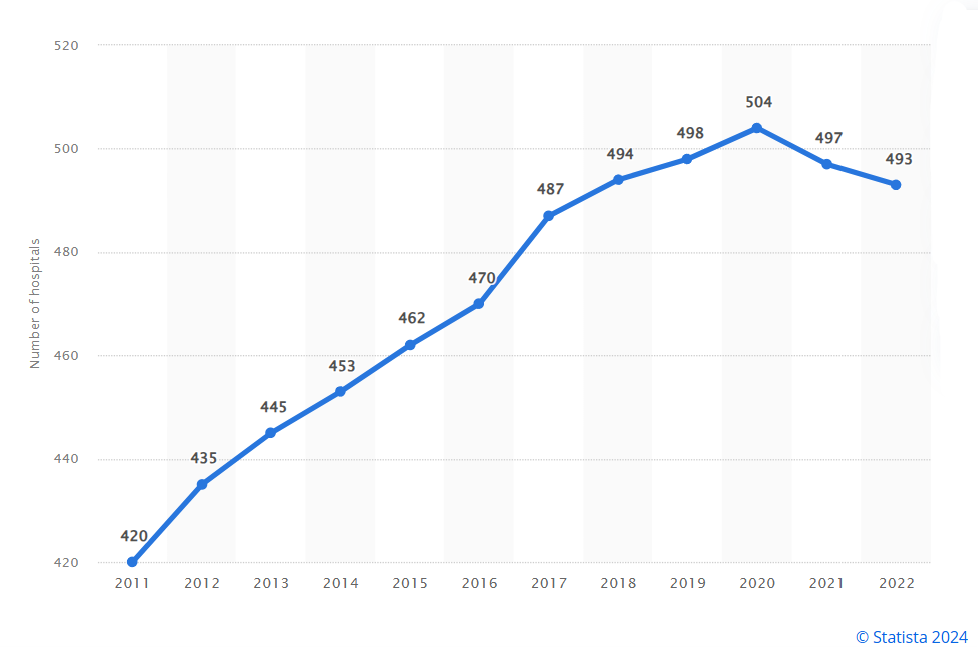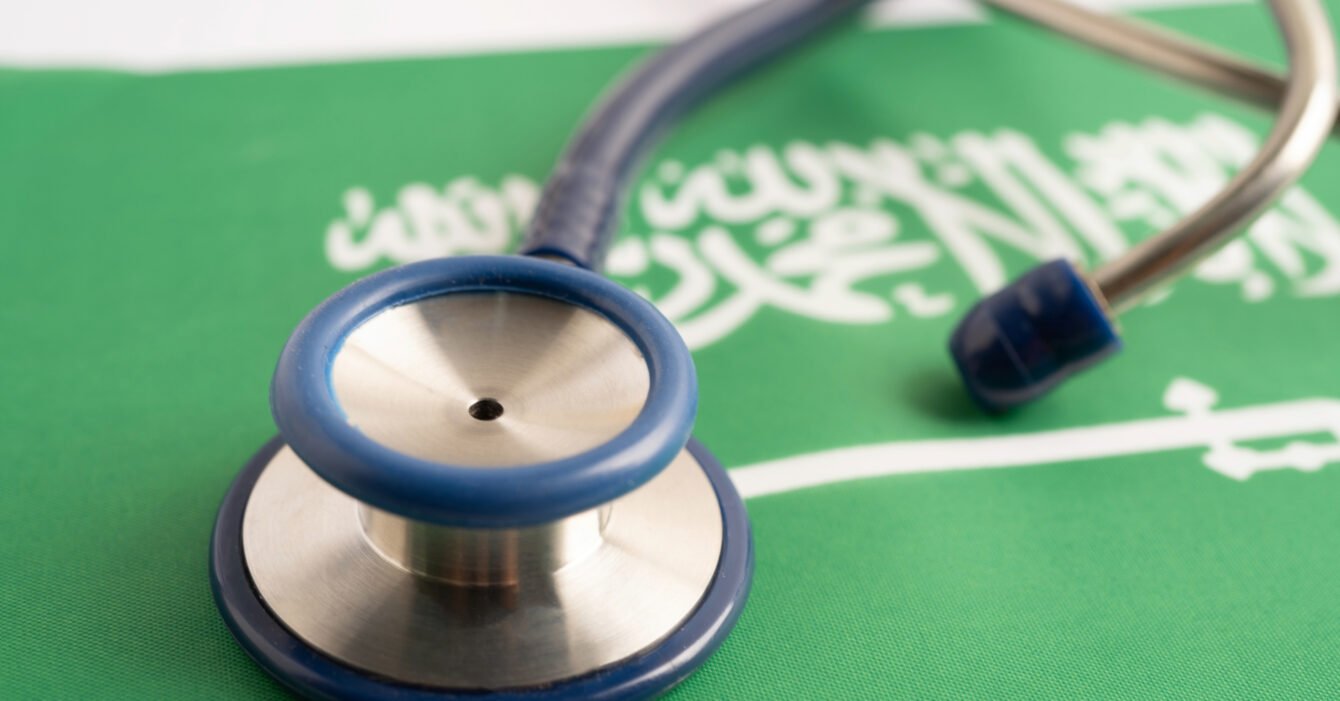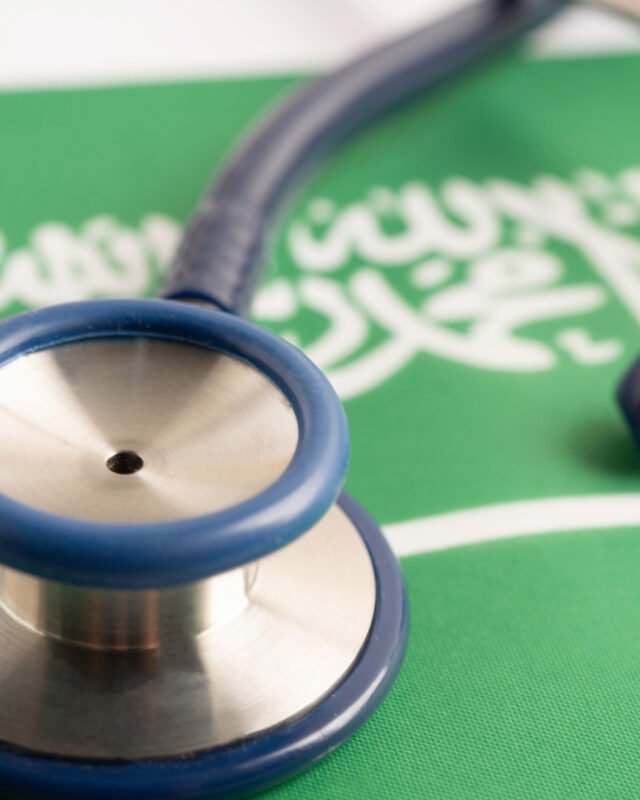Saudi Arabia’s commitment to transforming its healthcare sector is evident through its Vision 2030 initiative, which aims to accelerate healthcare infrastructure Saudi Arabia is enhancing. This comprehensive strategy not only improves healthcare access and quality but also integrates substantial investments from both the public and private sectors. This article explores these developments, focusing on healthcare infrastructure development in Saudi Arabia and the critical role of government and private investments.
Hospital Trends and Healthcare Privatization in Saudi Arabia

In 2022, Saudi Arabia reported a total of 497 hospitals, a slight decrease from the previous year, marking the first decline after a decade of consistent growth in hospital numbers. This change indicates emerging challenges in expanding healthcare infrastructure in Saudi Arabia, despite the overall upward trend over the last ten years. The Ministry of Health, the primary provider of healthcare services in the Kingdom, owns the majority of hospital beds and has faced increasing pressures from the growing population’s demands on the healthcare system.
Vision 2030: A Blueprint for Healthcare Enhancement
Under Vision 2030, Saudi Arabia plans a sweeping transformation of its healthcare infrastructure with a $65 billion investment earmarked for enhancing the healthcare system. This ambitious plan calls for the privatization of 290 hospitals and 2,300 primary health centers by 2030, radically altering the landscape of healthcare provision across the Kingdom. This shift aims to decentralize services and enhance the efficiency and quality of healthcare, positioning Saudi Arabia as a leader in health services in the Middle East and beyond.
The Role of Public-Private Partnerships
2024 marks a significant year as Saudi Arabia advances its Public-Private Partnership (PPP) model, especially in the healthcare sector. The Kingdom has announced plans to tender five university hospital projects next year, including notable institutions like Imam Abdulrahman Bin Faisal University Hospital in Dammam and King Khalid University Hospital in Abha. These projects, crucial for healthcare infrastructure development in Saudi Arabia, emphasize building and equipping facilities that align with educational standards and health system norms. These partnerships are expected to enhance the healthcare infrastructure of Saudi Arabia significantly by bridging gaps in service provision and incorporating advanced technological solutions.
Budget Allocations and Private Sector Growth
The 2023 KSA budget for healthcare and social development totals $50 billion, accounting for 17% of the Kingdom’s total budget, underscoring the government’s commitment to the healthcare infrastructure Saudi Arabia is enhancing. This allocation supports infrastructure projects and operational enhancements across existing facilities. Furthermore, the private sector’s role is expanding, with plans to increase private healthcare provision from 40% to 60% by 2030. This includes the addition of approximately 8,200 beds and expansions in community care and long-term rehabilitation facilities.
Ensuring Long-term Value and Efficiency
As Saudi Arabia continues to invest heavily in new healthcare facilities, a strategic focus on the lifecycle value of these investments is essential. The government advocates for efficient facility management and planning from the project’s outset to ensure facilities are not only built to meet current needs but are also adaptable for future demands. This strategy helps manage long-term costs and improves the overall efficiency of healthcare services, which is crucial for sustaining the burgeoning healthcare infrastructure in KSA.
Conclusion
The future prospects for healthcare infrastructure development in Saudi Arabia are robust, supported by substantial investments and strategic reforms. As the Kingdom continues to expand its healthcare offerings, the integration of private investments and the strategic use of PPPs are set to play pivotal roles in this transformation. With these efforts, Saudi Arabia is well on its way to achieving its Vision 2030 goals, promising a healthier future for its population and setting a benchmark in healthcare excellence globally.




